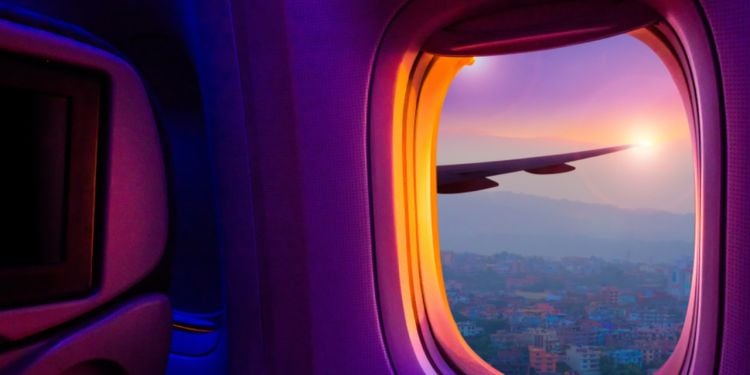
With its location at the end of Africa, its contrasting landscapes and wilderness, and its multiracial and multicultural population, South Africa is an attractive country, and its eventful history has always aroused curiosity, whether for a tourist trip or for a longer stay.
Furthermore, South Africa shares borders with Botswana, Lesotho, Zimbabwe, Mozambique and Namibia, so it can be the starting point for discovering the continent.
There are three international airports in South Africa: Cape Town International Airport, O.R. Tambo International Airport in Johannesburg and King Shaka International Airport in Durban.
Air France, British Airways and Iberia are some of the airlines to offer direct flights all year round to Johannesburg and direct flights to Cape Town during the South African summer season (October to April), and KLM from Amsterdam.
Other airlines serving Johannesburg and Cape Town with stopovers are Turkish Airways (with a stopover in Istanbul), Ethiopian Airlines (with a stopover in Addis Ababa), Lufthansa, and Qatar Airways (with a stopover in Doha) for the main ones. Emirates is the only airline to serve Durban.
The national airline South African Airways (SAA) operates an extensive network of flights between Johannesburg and major cities in South and North America, Asia, Europe, Australia and Africa.
From the three main airports, South African Airways, Kulula and Mango offer numerous daily flight connections between the country's major cities.
Ticket prices vary depending on the airline, travel dates and airport of arrival. In general, flights to Cape Town are more expensive than those to Johannesburg. You can compare flight tickets using Expat.com's dedicated tool.
The most expensive months to travel to South Africa are December and January (summer months) and July and August (school vacations in Europe).
Entry requirements for South Africa
Usually, the person entering South Africa already has a work, retirement or student permit, as the application is made at the South African Embassy in the country of residence.
Nationals of the Schengen area, Swiss nationals and Canadians do not need a visa.
A residence permit will be issued free of charge upon arrival at the airport under the following conditions:
- the passport must be valid for more than 30 days after the visa expires
- You must have a return ticket
- the passport must have 2 consecutive blank pages
- the duration of the stay must not exceed 90 days
It is possible to request an extension of stay of ninety additional days. The request must be made sixty days prior to the originally scheduled departure date to the VFS Global center. The extension request costs around R1500 and can take eight to ten weeks.
The tightening of immigration laws in 2014 ended the visa rush of going to the nearest country for a few days and getting a new ninety-day stay permit upon re-entering South Africa. Since 2014, when returning from a bordering country, a seven-day visa is issued. One must return from their country of residence in order to have a new ninety-day residence permit (even if they only spend twenty-four hours there).
If a minor child is traveling alone, an exit permit, a letter of parental authorization with their contact information, a copy of the parents' passports, a letter from the person who will be hosting the child in South Africa mentioning their address and contact information, and a copy of their passport will be required upon entry.
All of these documents must be legalized and accompanied by a translation into English by a sworn translator.
A parental consent letter can be downloaded from the Home Affairs website (immigration section).
What can you bring to South Africa?
South Africa accepts limited quantities of consumer goods without being subject to import tax or VAT. Travelers may enter the country with 200 cigarettes and 20 cigars, 50 ml of perfume and 250 ml of eau de toilette, 2 L of wine and 1 L of other alcoholic beverages per person. It is possible to bring in medication for one month, but a prescription for a longer period is required.
All currency in excess of R25,000 for South African banknotes and over $10,000 for any other currency must be declared.
South African currency
The South African currency is the Rand, Zar being the currency abbreviation for the Rand in the foreign exchange markets.
There are 10, 20, 50, 100 and 200 Rand bills, 10, 20 and 50 cent coins and 1, 2 and 5 Rand coins.
The exchange rate has been around 17 Rands for 1 Euro for about 2 years. The Rand is also used in Lesotho and Swaziland.
Current health conditions in South Africa
As of June 23, 2022, all COVID-19 health regulations have been removed. Travelers entering South Africa are no longer required to produce a vaccination certificate or a negative PCR test.
Travelers arriving in or transiting through countries designated as at risk by the WHO must have been vaccinated against yellow fever at least ten days prior to arrival and present a WHO-approved international certificate of vaccination.
Treatment for malaria is recommended if traveling in some regions of South Africa. The risk areas are along the borders with Botswana and Zimbabwe: Mpumalanga, Limpopo and in the Krüger Park area on the border with Mozambique.
South Africa has the highest HIV seropositivity in the world. It is estimated that approximately 7.7 million South Africans are living with AIDS and that the disease caused 72,000 deaths in 2019. The epidemic emerged in the early 1980s but was ignored by the government of the day. In 2000, the Ministry of Health presented a program to combat the epidemic, but it was not supported by the government. The government did not recognize the epidemic until the late 2000s and set up a treatment distribution plan. But currently, less than 30% of those who have contracted the disease have access to therapy.
Safety in South Africa
South Africa is known to have a very high crime rate, but violent crime occurs mainly in certain areas, most often the townships. The most common crimes that most people encounter are credit card fraud and petty theft.
It is important to be on guard in public places, not to carry valuables or large sums of money, but always keep a few bills to give in case of an attack. Be careful when withdrawing cash from ATMs, and preferably choose those inside the banks. Stay away from neighborhoods that are considered dangerous, and always ask about the best route to take when traveling. When driving in South Africa, make sure to keep your doors and windows closed and locked, ignore people approaching the vehicle at red lights, and avoid driving at night outside built-up areas.
Remote car jamming is widely used by thieves to disable the central locking system of vehicles. Always check that the doors are locked.
If attacked, do not resist or fight back, but obey the attacker's demands and go to the nearest police station.
Places to avoid in Johannesburg are the Hillbrow, Berea, Alexandra and Yoville areas as well as the old city center at night and on weekends.
In Durban, avoid going to Victoria Pier, Point Road, and be careful at all hours on the Waterfront Promenade.
In Cape Town, you should remain vigilant in the areas of Woodstock, Observatory, Bo Kaap when walking and in Longstreet at night because many pickpockets are present.
As long as the usual precautions are taken and vigilance is exercised, it is possible to travel or live in South Africa in complete safety.
It is preferable to choose supervised beaches for swimming because of the strong sea currents. Sharks, including the great white, are very present all along the South African coastline. The Durban area has anti-shark nets installed off most beaches.
We do our best to provide accurate and up to date information. However, if you have noticed any inaccuracies in this article, please let us know in the comments section below.





